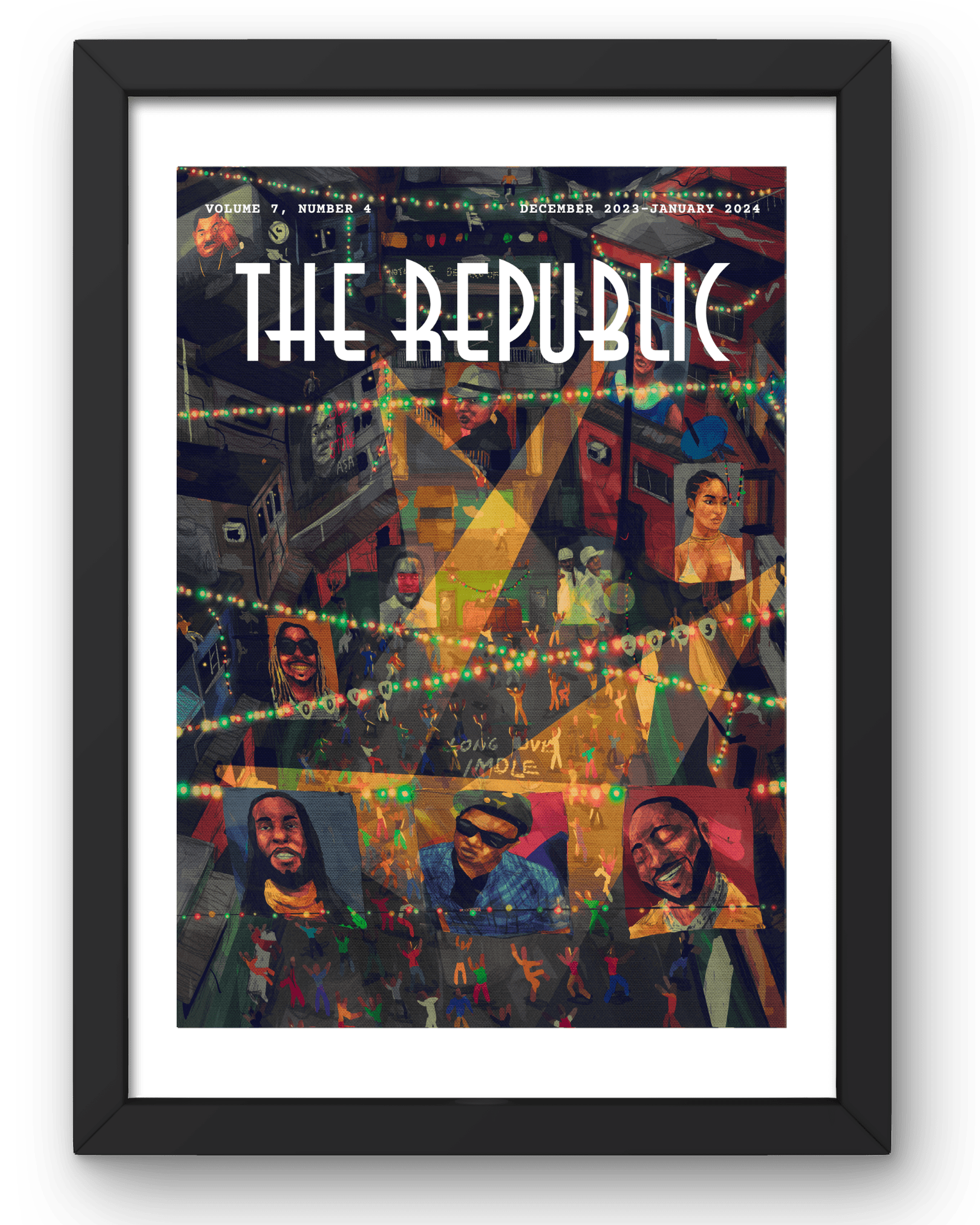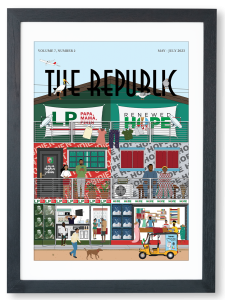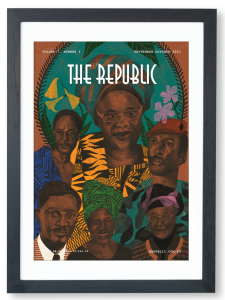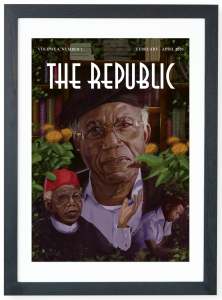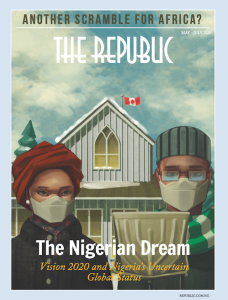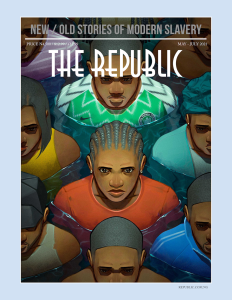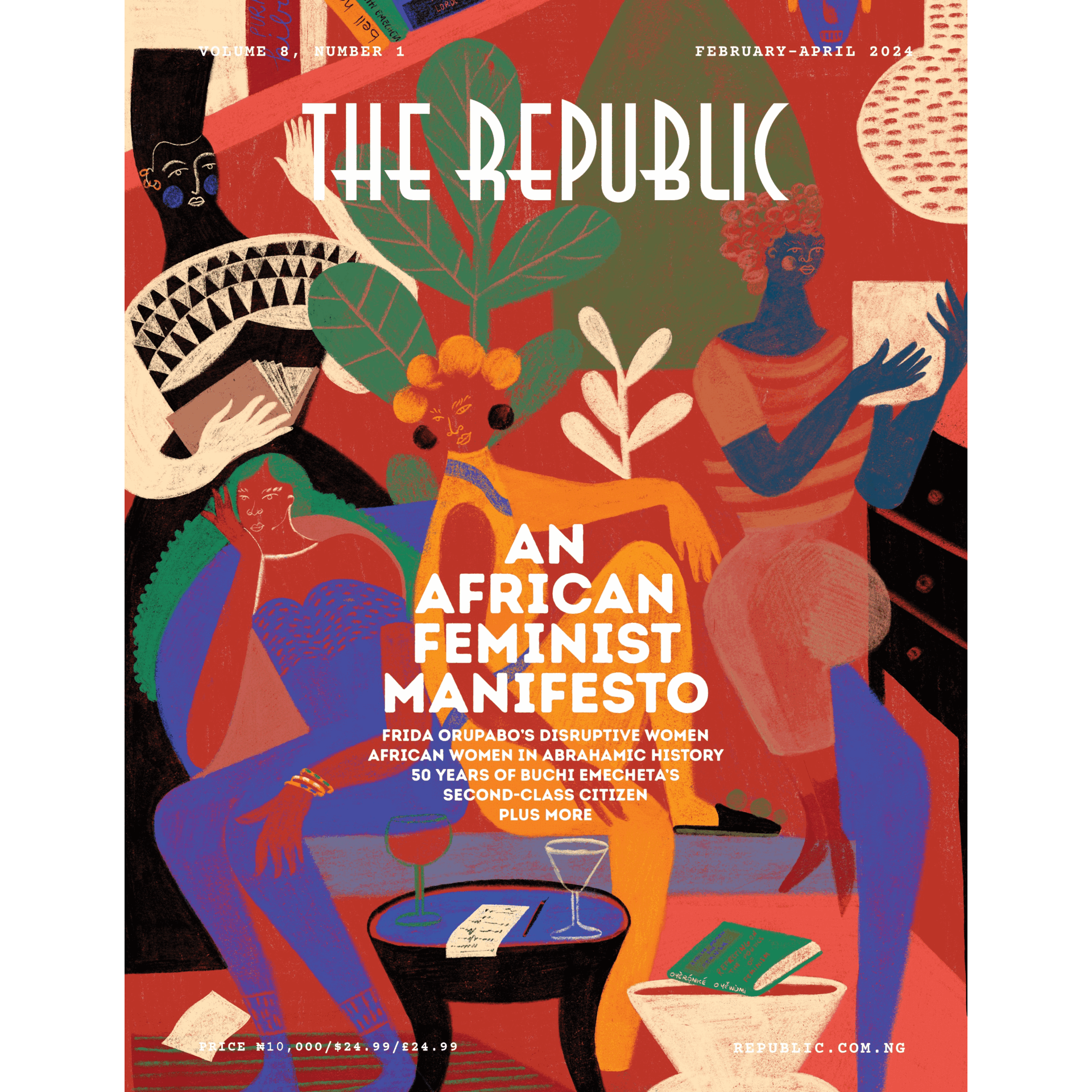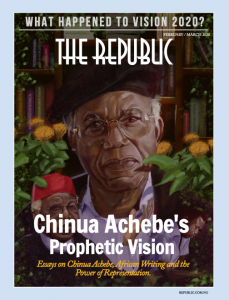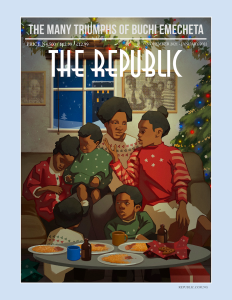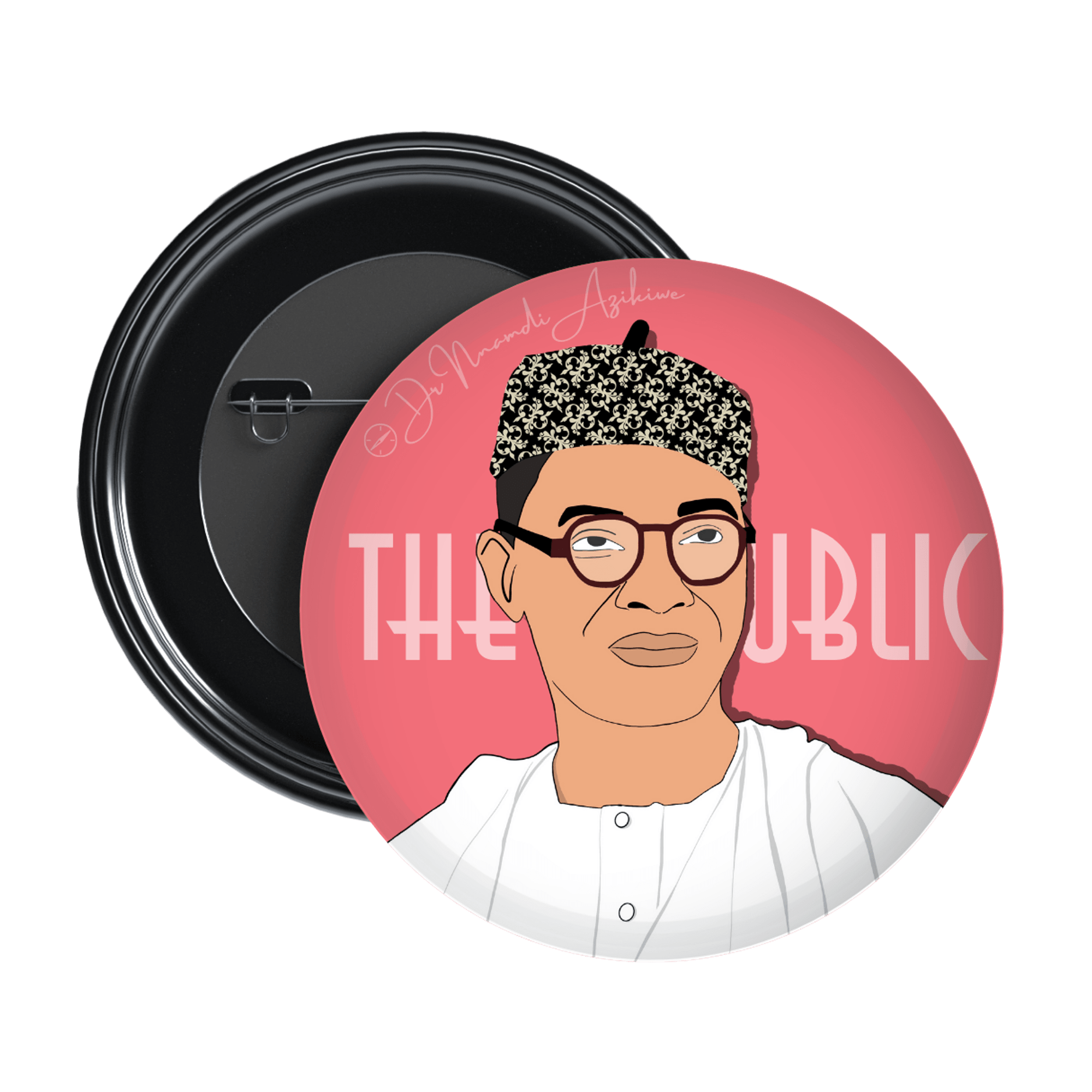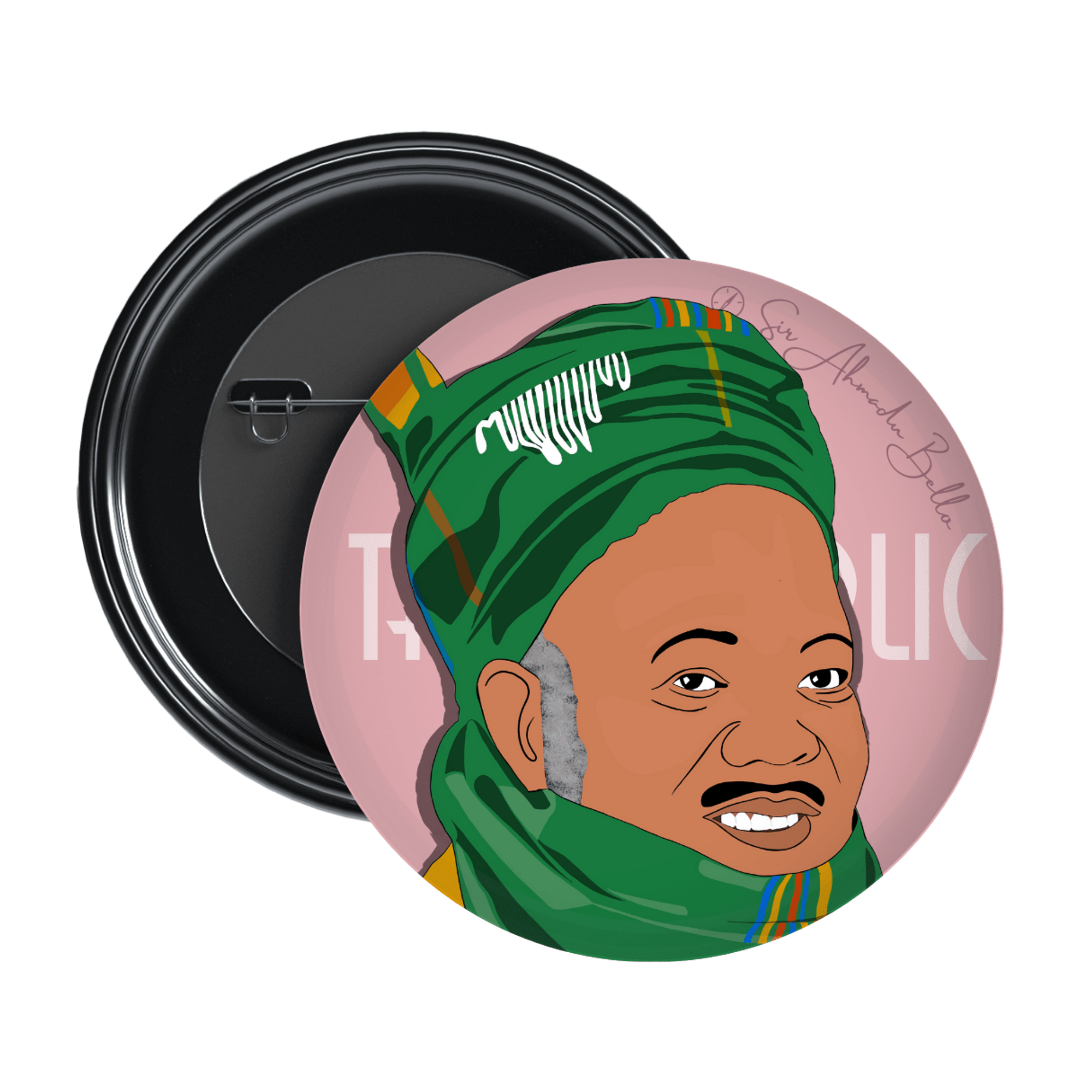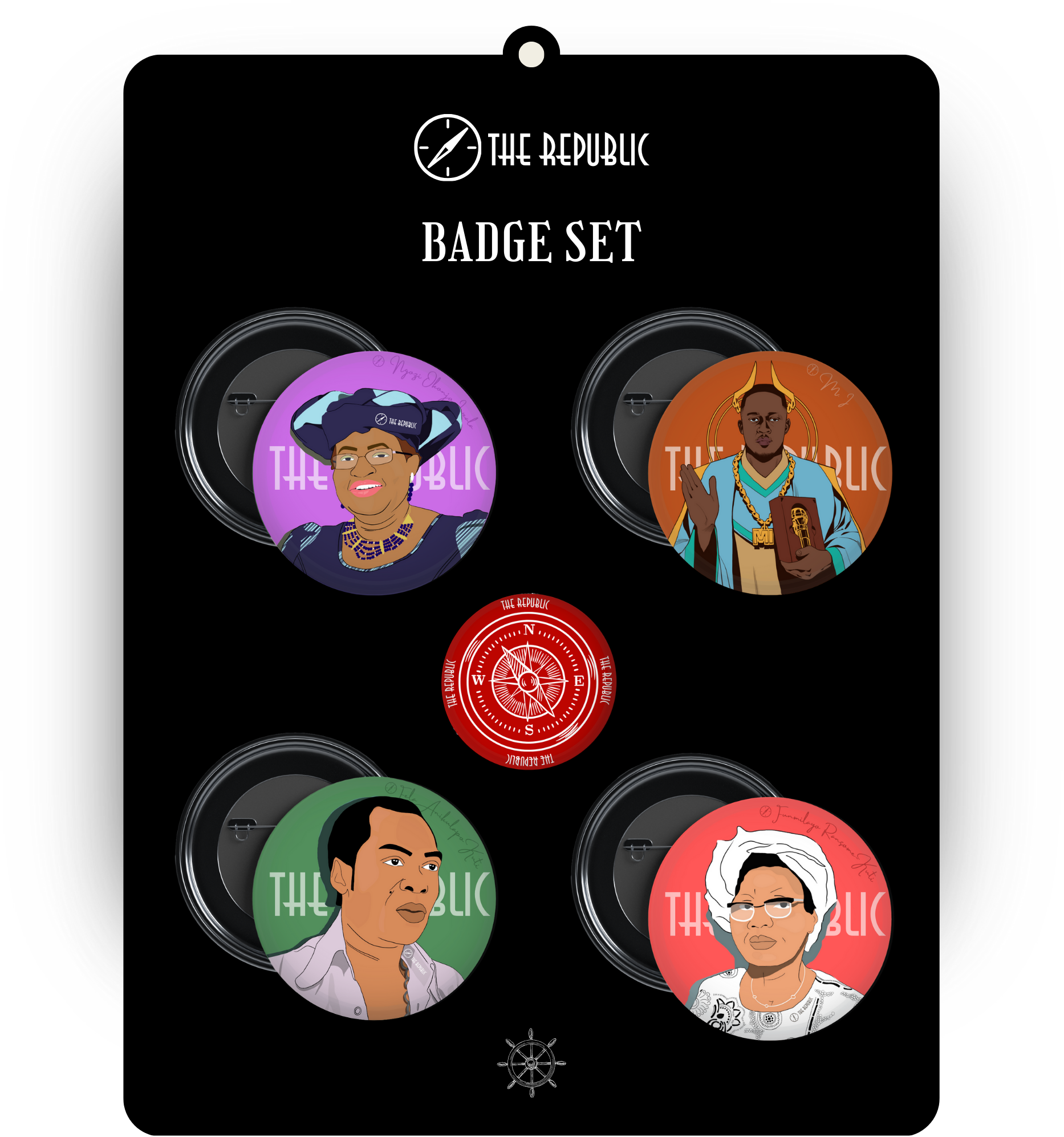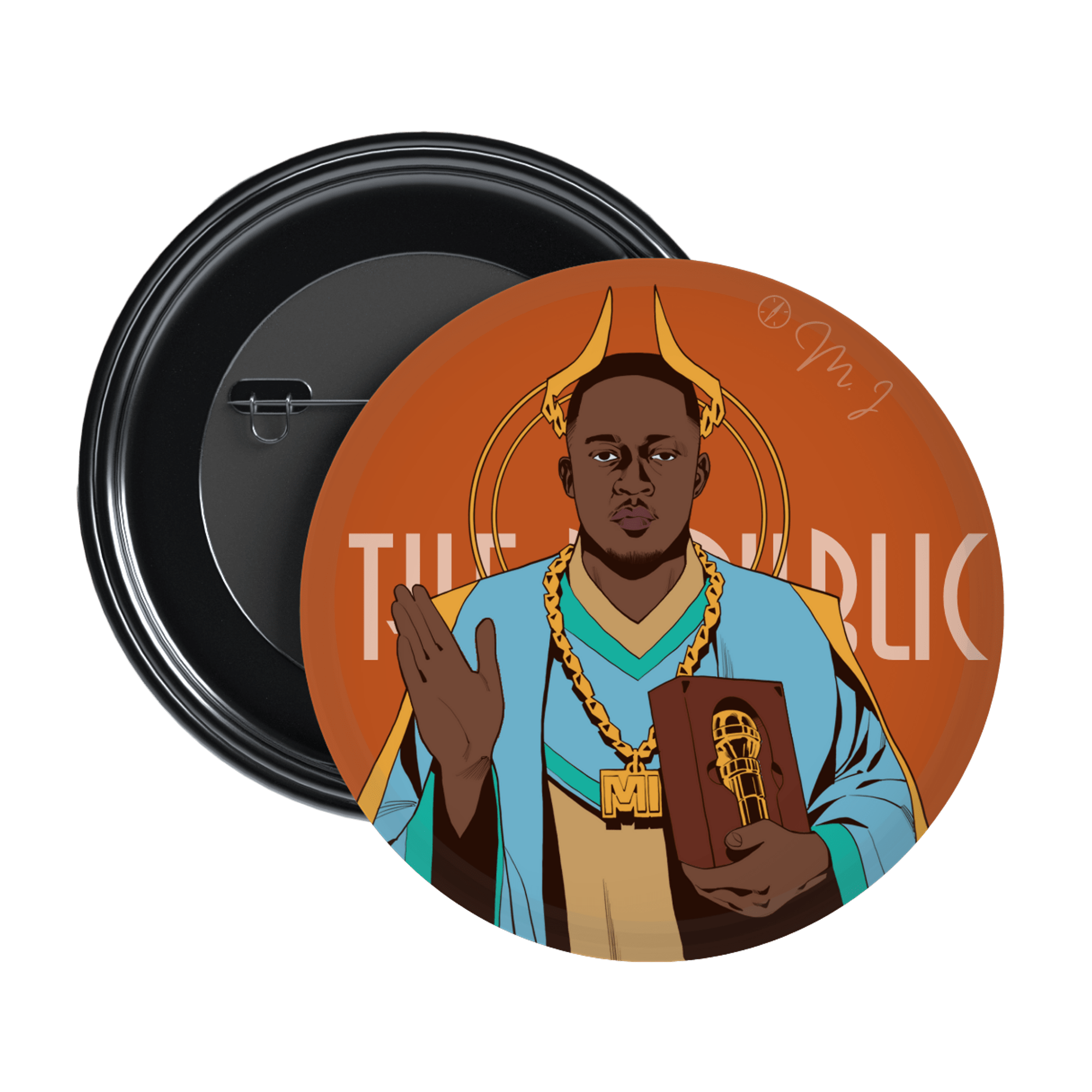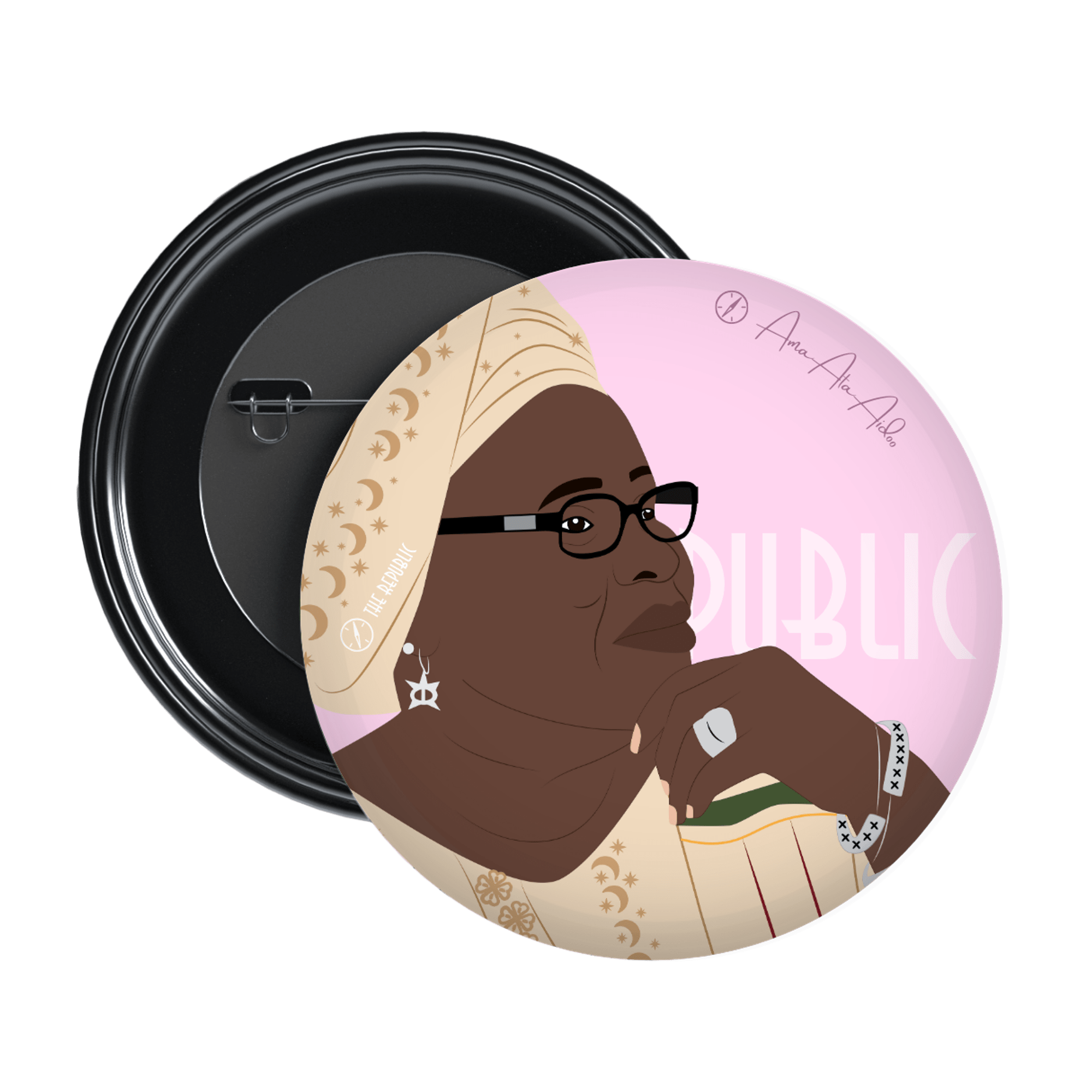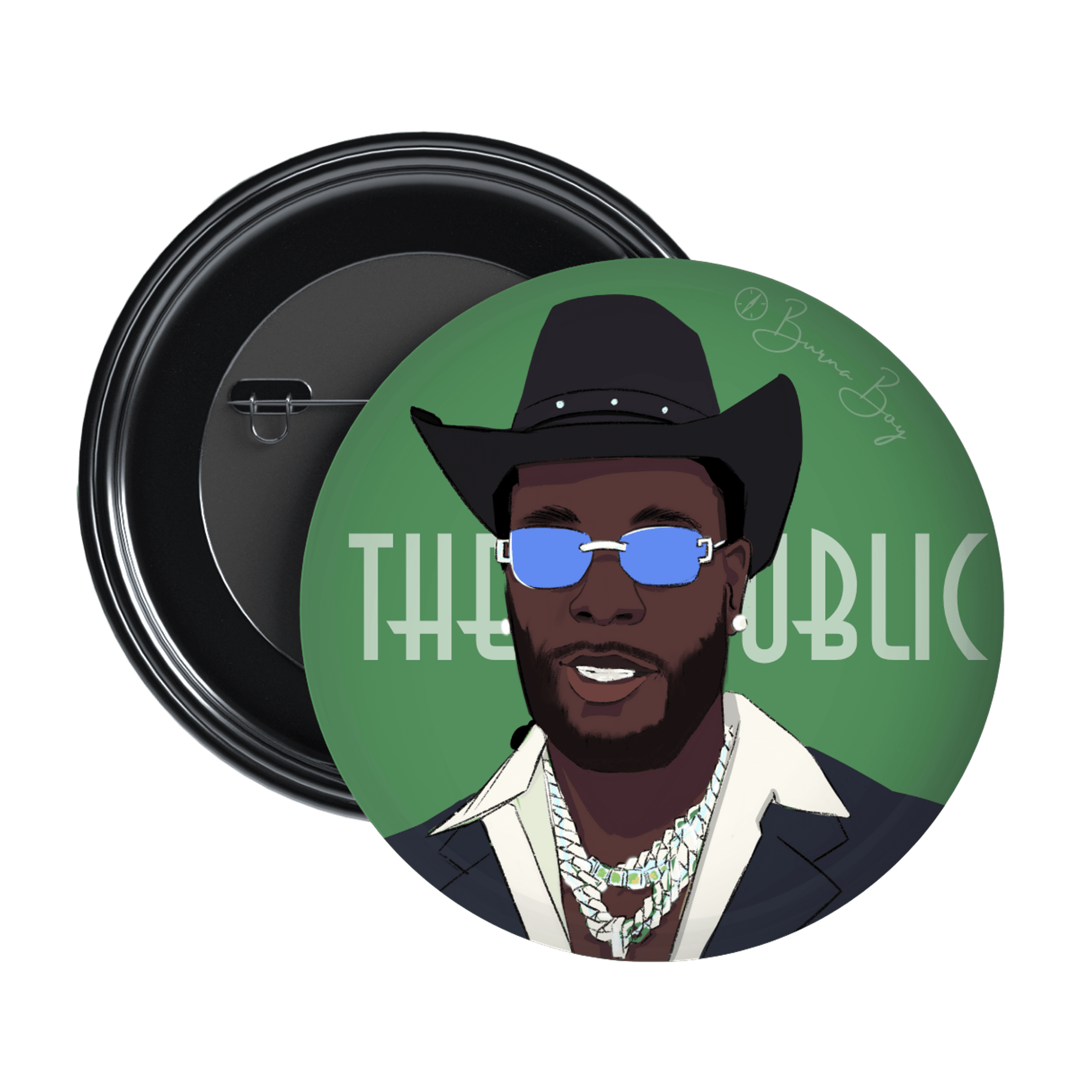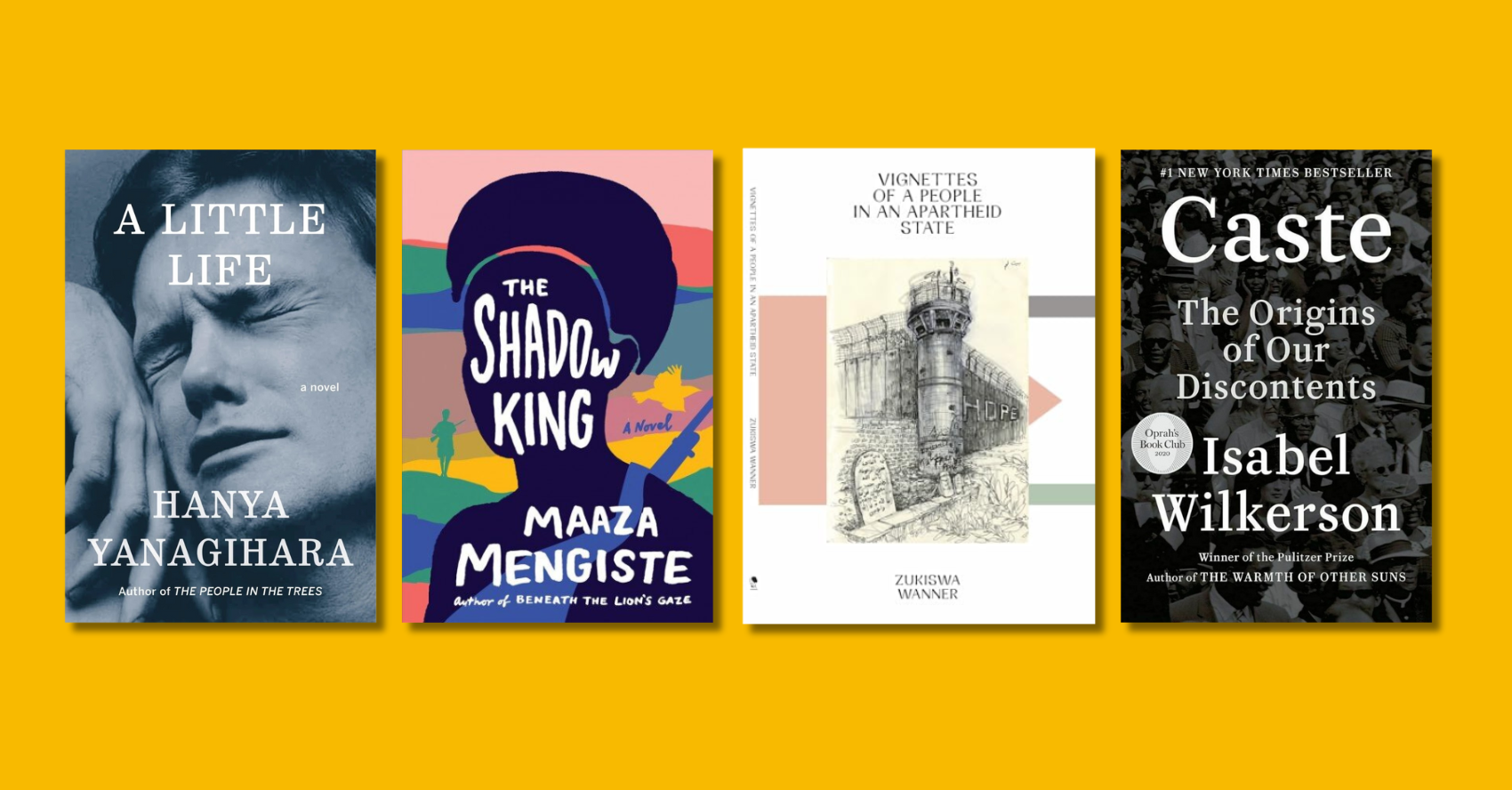
Photo Collage from Original Book Covers by Peace Onafuye / THE REPUBLIC.
the REPUBLIC INTERVIEWS / FIRST DRAFT
The Books That Changed the Minds of Writers

Photo Collage from Original Book Covers by Peace Onafuye / THE REPUBLIC
the REPUBLIC INTERVIEWS / FIRST DRAFT
The Books That Changed the Minds of Writers
The joy of being a reader lies in discovering new thoughts, ideas, and histories. I remember reading Maaza Mengiste’s The Shadow King in 2021 and being fascinated by my discoveries about Ethiopian history. I was particularly intrigued because these discoveries, including the participation of women in the Second Italo-Ethiopian War of 1935, hadn’t come to me during my days of studying history both as an undergrad and as a postgrad student. Somehow, fiction provided me with this knowledge, which changed my perspective on the profound histories and ideas one can gain from reading.
Books have the power to alter one’s perceptions. And that is why it’s always interesting to read the responses to the question, ‘What’s the last thing you read that changed your mind about something?’ in our First Draft interview column, where we feature authors, publishers, editors, academics, and creatives. The responses often include diverse books and essays that make great recommendations. That’s why we have compiled some of our favorite answers from the past year.
For instance, Zimbabwe’s, Farai Mudzingwa, shared how Henry Hobhouse’s Seeds of Change: Six Plants That Transformed Mankind changed his views on sugar, revealing its harmful effects on the human body and its role in driving colonialism and chattel slavery. Ghana’s, DK Nnuro, recalled that Hanya Yanagihara’s A Little Life made him less suspicious of melodrama. Nigeria’s Abubakar Adam Ibrahim discussed how Zukiswa Wanner’s Vignettes of a People in an Apartheid State deepened his understanding of crisis situations, such as Israel’s bombardment of Gaza. But that’s only a fraction of the responses we’ve received.
Here are seven writers and the books that changed their minds about something.
NANA EKUA BREW-HAMMOND
Miral al-Tahawy’s The Tent expanded my idea of how a story can and should be told. For most of this novel, set in the desert on a gated Bedouin family compound, she challenges readers accustomed to Western storytelling structures to really engage with and understand the text. Then, towards the end of the book, she has the protagonist perform her story for a British character and her friends, showing us the ways writers published in the West wittingly or unwittingly pander to European and North American sensibilities.
ABUBAKAR ADAM IBRAHIM
I’ve found that much of what I read either reinforces my existing perceptions or, like Zukiswa Wanner’s Vignettes of a People in an Apartheid State, deepens my understanding of situations, such as the one in Palestine. I think I have arrived at my opinions about things from a perspective of knowing and with an open mind and haven’t had to make a volte face about situations by a superior argument.
shop the republic
FARAI MUDZINGWA
The chapter on ‘Sugar’ in Henry Hobhouse’s Seeds of Change: Six Plants That Transformed Mankind put me off sugar. I have not taken sugar or had anything with added sugar in it since I read that chapter. The book details how harmful sugar is for the human body and its key role in driving colonialism and chattel slavery.
MUTHONI MUIRURI
It’s not exactly the last thing because I read this a few years ago, but it is one that was significant in shifting my historical perspective of Ethiopia and women’s role in conflict—The Shadow King by Maaza Mengiste. It’s a story that fictionalizes the second Italo-Ethiopian war that put an end to Italy’s attempted occupation of Ethiopia. Mengiste in this retelling, centers the role of women in the war—who not only provided leadership and guidance but also took up arms to defend their country, especially after the emperor, Haile Selassie, jumped ship (story for another day). This book is an ode to those women, and it made me think deeply about all the women across time and generations who have been ignored and their contribution, as Mengiste so aptly puts it, ‘relegated to the footnotes of history’. This sent me down a deep rabbit hole to uncover and find other women in history who have suffered the same fate and neglect.
shop the republic
DK NNURO
Hanya Yanagihara’s A Little Life made me less suspicious of melodrama; or perhaps the appropriate term might be James Wood’s ‘hysterical realism’. In any case, I have been freed of such concerns in my own work.
OMOLOLA OGUNYEMI
The book, Caste, by Isabel Wilkerson. It got me to reframe the way I think about race and class in the United States. I was born in Nigeria, but I’ve lived most of my life in the US and I’m still learning the nuances of how the past affects the present here.
shop the republic
OLUWATOMISIN OREDEIN
Reading Nayyirah Waheed’s newest creation, a multibook, Stream Black Books, has inspired me to contemplate Blackness, spirituality, creative inheritances, cultural beliefs together, and towards what directions they can push areas like Christian theology and ethics. I am convinced that Christian theology in the West must take various Black spiritual expressions and forms seriously in order to best understand its own history and legacy. Waheed’s creation invites this exploration and much, much more! Stream Black Books (actively) shatters my understanding of who I thought could be my theological conversation partners and expands my view of the divine⎈




